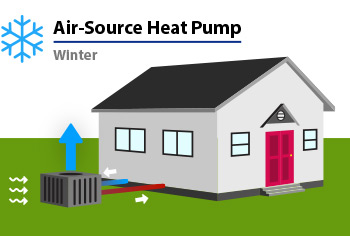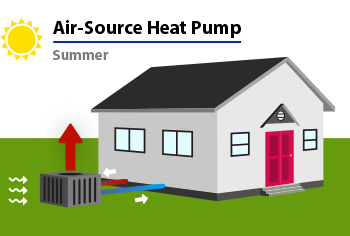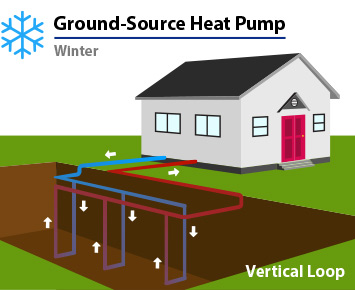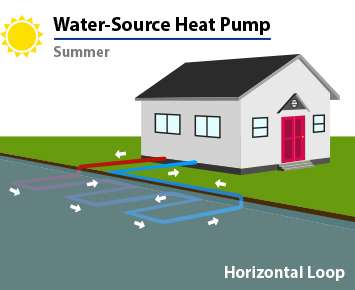Quality matters when hiring for a big project. Call a Best Pick now!
With the average home spending about $1,000 and nearly half of its total energy consumption on annual heating and cooling operations, according to ENERGY STAR, homeowners are eager for money-saving alternatives.
For people who live in relatively temperate climates, heat pumps are a promising option. This energy-efficient equipment handles all of your year-round heating and cooling needs by transferring heat indoors or outdoors, depending on the season.
Instead of generating heat by burning gas as a traditional furnace does, heat pumps simply move heat and can supply up to four times the amount of energy they consume, according to the US Department of Energy.
How Heat Pumps Keep Your Home Comfortable
While the inner workings of a heat pump can easily baffle any homeowner, the general process is fairly straightforward.
Heat will not spontaneously move from an area with a low temperature to an area with a higher temperature—if it did, heating your home in the winter and cooling it in the summer would be much easier and less costly.
Heat pumps work against the natural flow of hot air by moving or “pumping” heat from cooler to warmer areas. During the summer, a heat pump works just like a conventional A/C unit, drawing heat from your home to the outside and replacing it with air that has been cooled by refrigerant.
During the winter, the reversing valve redirects the flow of refrigerant—and the heat, as a result. Now, the heat pump removes thermal energy from the outside air or the ground, providing warm air to your home while drawing cool air back outside.
Types of Heat Pumps

Air-Source Heat Pumps
The US Department of Energy estimates that an air-source heat pump can provide one-and-a-half to three times the amount of energy that it consumes.
For optimal performance, select a heat pump with a Heating Seasonal Performance Factor (HSPF) of eight or higher and a Seasonal Energy Efficiency Ratio (SEER) of fourteen or higher.
Because air-source heat pumps distribute air to your home through a duct system, make sure that your ducts are properly sealed and insulated to avoid wasting energy.

Though highly energy efficient, standard air-source heat pumps are not practical everywhere.
Climates that frequently experience below-freezing temperatures make poor environments for heat pumps.
An accumulation of ice on the coils or Freon lines will restrict airflow and prevent the system from heating and cooling your home efficiently.
Even worse, prolonged freezes can damage the compressor, resulting in costly repairs.
While air-source heat pumps designed for extreme cold have appeared on the market in recent years, they have not yet achieved widespread use.
Geothermal (Ground-Source or Water-Source) Heat Pumps (GHPs)

Rather than pulling energy from the air, GHPs pull heat from either the ground or a nearby water source.
GHPs cost more to install than air-source heat pumps, but they can function in colder climates, require less maintenance, have a longer life expectancy, and heat and cool more efficiently.
While temperatures can fluctuate dramatically in the open air, belowground temperatures remain relatively constant.
Underneath the surface, temperatures will stay cooler than the stifling summer air and warmer than the frigid winter chill.
As a result, your heat pump will not have to work as hard to keep your home comfortable. According to the US Department of Energy, the additional cost of installing a GHP can be recovered with energy savings in five to ten years.

To install a GHP, a system of pipes called a heat exchanger gets buried in a closed-loop configuration, which comes in two main varieties: horizontal and verticle.
Horizontal closed-loop systems require less depth, making them more cost effective to install than vertical systems, but they should only be placed where ample land is available.
Vertical closed-loop systems can be installed where space is limited. A closed-loop system can also be placed in a nearby water source as long as it meets requirements for depth, volume, and quality.
Though heat pumps of any variety require up-front costs that can exceed traditional A/C and heating units, these systems can recover expenses by providing energy savings year after year.
As with any HVAC system, always work with a quality professional to ensure that your unit gets installed correctly and maintained properly throughout its lifetime.
























